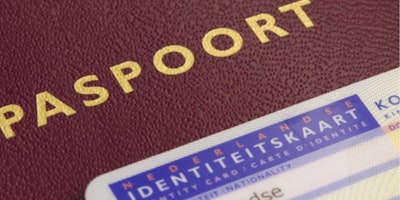
Ready to move: The first steps for successful relocation
Are you preparing to move to the Netherlands? Congratulations! You're about to start a new life in your new country. However, there are crucial steps that require your attention.

Published April 24, 2024
Updated February 2025 - Moving to the Netherlands involves various administrative tasks, including registering with the municipality, obtaining a Citizen Service Number (BSN), and applying for a DigiD. These steps are crucial for accessing essential services and facilities in the country.
Whether you are relocating as a highly skilled migrant, entrepreneur, EU Blue Card holder, or
intra-company transferee, or you are an EU citizen moving to the Netherlands, this in-depth
article aims to simplify the process for you.
Upon arrival in the Netherlands, one of the first tasks is to register with the municipality where you plan to reside. It's important to note that registration is only possible if you have a residential address in the Netherlands. If you haven't secured accommodation yet, your employer or a Relocation Agency can assist you in finding suitable housing and navigating the registration process.
Getting Document-Ready
Before initiating the registration process, gather the necessary documents, including proof of identity (passport or ID card), proof of address (rental agreement or utility bill), and any relevant immigration documents (residence permit, employment contract). Ensure that all documents are translated into English, Dutch, German, or French if they are in another language than these.
Obtaining your BSN (Burger Service Nummer)
During the municipal registration, you will be issued a Citizen Service Number (BSN), which is essential for various administrative and financial transactions in the country. The BSN registration typically occurs immediately or within 14 days after registration, and you will receive your permanent BSN number, which remains the same throughout your life, even if you move out of the Netherlands.
To apply for a BSN, you must visit the municipal office (Gemeentehuis) in person and provide
the required documents.
The essential: a DigiD
After you have registered for a BSN, you can then proceed to register for a DigiD, which is a digital identification system used to access government services and online platforms. To obtain a DigiD, you must possess a registered BSN.
You can register for a DigiD online via the DigiD website. Once you have completed the online registration, you will receive a letter by mail containing an activation code. It is important to activate your DigiD promptly, as it enables access to a variety of online services in the Netherlands.
Recent Update: DigiD Activation Process
The DigiD application process has been streamlined. Applicants can now receive their activation code within three working days after applying online, speeding up the registration process.
Starting in late 2025, non-EU travelers, including those from visa-exempt countries, will need to obtain a European Travel Information and Authorization System (ETIAS) authorization before entering Schengen countries, including the Netherlands. This involves an online application and a €7 fee, with the authorization valid for up to three years. Keep this in mind when planning your move to the Netherlands or other EU countries.
With the above preparations in place, you are about ready for exploring the Dutch culture.
The next challenges include securing accommodation, organizing healthcare, or applying
for schooling, which are all addressed in this Expat Guide.
For guided immigration, relocation, or home-finding assistance, it is advised that you contact
your (Dutch) employer. You can also reach out to RSH | Relocation and Immigration Services - an experienced agency supporting internationals moving abroad.

This article was prepared in collaboration with RSH | Relocation and Immigration Services, a full-service Relocation, Immigration, and Home Finding agency with 35 years of in-house experience. RSH provides support to knowledge migrants, HR managers, recruiters, and expats in organizing immigration matters, moving to, and housing in the Netherlands.

Are you preparing to move to the Netherlands? Congratulations! You're about to start a new life in your new country. However, there are crucial steps that require your attention.

Living in the Netherlands can come with a higher cost of living. To help offset these costs, your employer may offer you a tax-free benefit known as the 30% Tax Ruling. This tax advantage, part of the Dutch tax system, allows up to 30% of your employment income to be paid out tax-free. It can significantly influence financial decisions for those relocating to the Netherlands. This article will guide you through what the ruling entails, who is eligible, and how to apply.

If you are new to the Netherlands, one of the initial tasks on your checklist is likely sorting out your health insurance. It is vital to ensure both you and your loved ones are well-covered in your new home. In this article, we will guide you through the basics of Dutch healthcare, alongside what is covered and how to apply for suitable health insurance. In the meantime, we will also ensure that your temporary care is well arranged.